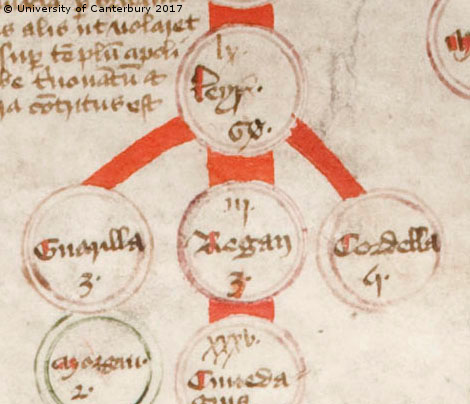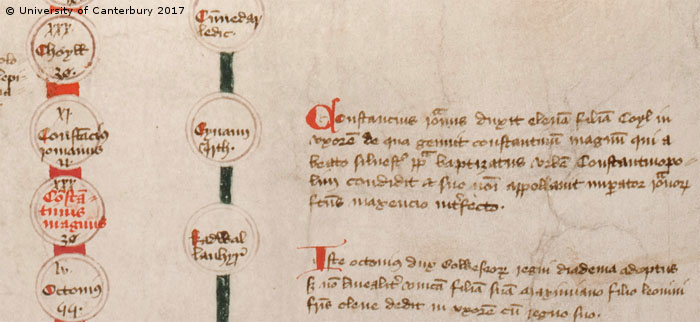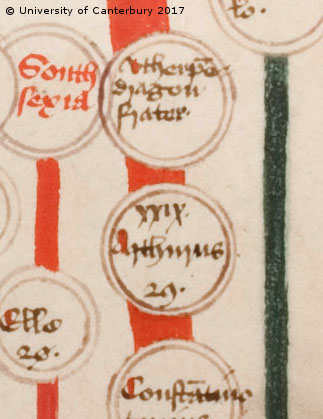The third significant element of myth-history included on the Canterbury Roll concerns the pre-Saxon British kingdom. Although genuine historical figures make an appearance, they do so in the context of a legendary ancient British history.
Sources
The line of mythical kings presented on the Canterbury Roll is largely influenced by chronicles of the time, including the popular Historia Regum Britanniae by Geoffrey of Monmouth. Completed in the 12th century, the Historia traced the story of England from its founding to the Saxons. It incorporated fiction and history, and, while some contemporaries questioned its accuracy, it influenced British history for centuries. By the time the Canterbury Roll was produced, it provided much of the accepted version of early British history.
See below for some major mythical and historical characters from the Canterbury Roll that are recognizable today, including King Lear, Constantine the Great, and King Arthur.
King Lear of Britain
Lear of Britain is an example of one of the many pseudo-historical figures on the Canterbury Roll.
The story of King Lear and his daughters was made famous by Shakespeare's tragedy – however, the original tale itself is much older. The play, King Lear, offers a story that is very similar to the original legend as recounted in the earliest known written record by Geoffrey of Monmouth.
Interestingly, while Geoffrey's legend and the commentary on the Canterbury Roll agree that Queen Cordelia went on to reign for 5 years after Lear's death, she is not given a place on the central axis; her sister Regan is given that honour.



